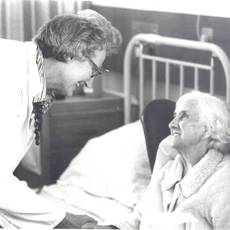On June 25, 2018, the Department of Justice announced that Caris Healthcare, L.P. and its wholly-owned subsidiary, Caris Healthcare, LLC (“Caris Healthcare”), have agreed to pay $8.5 million to resolve allegations that they violated the False Claims Act by knowingly submitting false claims, and knowingly retaining overpayments, for the care of patients who were ineligible for the Medicare hospice benefit because they were not terminally ill.
Registered Nurse’s Concerns Result in $1.4 Million Award
The settlement resolves claims that were originally brought by a registered nurse who formerly worked for Caris Healthcare, under the qui tam or whistleblower, provisions of the False Claims Act, which allow private individuals with knowledge of fraud to bring a lawsuit on behalf of the government and share in any recovery. Under the False Claims Act, the government can recover up to three times the amount of money that the defendant defrauded the government as well as civil penalties for each false claim for payment. In this settlement, the registered nurse who originally brought the case will receive $1,402,500.
How Hospice Fraud Works
In order to qualify for the Medicare hospice benefit, a patient must be expected to live less than six months if the patient’s illness progresses on a normal course. However, in order to profit from the tax-payer funded Medicare system, companies such as Caris Healthcare have been alleged to enroll patients who are known to be not terminally ill and thus do not qualify for the Medicare hospice benefit. In such as situation, enrolling ineligible patients for hospice care defrauds U.S. taxpayers and robs the strained Medicare benefit of money needed to provide hospice care for patients who do actually qualify for the benefit and truly need hospice care.
In this settlement, Caris Healthcare resolved claims that it admitted and re-certified patients for hospice care that were ineligible for the hospice benefit, meaning their condition did not support a terminal prognosis. Caris admitted and retained these ineligible patients in an effort to meet the aggressive admissions and census targets set by the company. The government further alleged that when Caris was alerted to the ineligibility of these patients—via internal audits, concerns raised by its Chief Medical Officer, and recommendations of its nurse employees who actually examined the patients—Caris not only continued to submit hospice claims to Medicare for the patients, but also took no meaningful action to determine whether it had previously received improper payments for these and other patients that should have been returned to Medicare.
The Importance of Prosecuting Hospice Fraud
“Today’s settlement is an important reminder that compliance programs and activities cannot exist in name only. When a healthcare provider is put on notice that a patient is ineligible for a particular Medicare benefit or service, the healthcare provider cannot turn a blind eye to that information but, instead, must take reasonable steps to stop the improper conduct and to determine whether that conduct resulted in prior overpayments,” said Acting Assistant Attorney General Chad A. Readler of the Justice Department’s Civil Division.
Along with Frohsin Barger & Walthall’s $75 million hospice fraud settlement involving Vitas Hospice, last year, this settlement signals encouraging steps to continue to prosecute hospice fraud and return stolen money to the Medicare Trust Fund.
For more information about hospice fraud and the False Claims Act, read Jim Barger’s seminal law review article: Life, Death, and Medicare Fraud: The Corruption of Hospice and What the Private Public Partnership Under the Federal False Claims Act is Doing About It.
False Claims Act Provides Statutory Protection to Individuals Who Expose Fraud
The False Claims Act also provides protection to whistleblowers who come forward to expose fraud against the taxpayers. This statutory protection includes protection against wrongful termination and other adverse employment actions suffered by individuals who seek to further a False Claims Act case or try to prevent the submission of false claims.
Frohsin Barger & Walthall would like to thank and congratulate the government employees and agencies who achieved this settlement, including: U.S. Attorney’s Office for the Eastern District of Tennessee, the Justice Department’s Civil Division, and the Department of Health and Human Services Office of the Inspector General. As well we would like to thank and congratulate the registered nurse whistleblower who brought this case and her counsel of Milberg, LLP and Provost Umphrey Law Firm, LLP.
To learn more about how the False Claims Act can prosecute hospice fraud, contact Frohsin Barger & Walthall






Talk with an Expert
Frohsin Barger & Walthall
Call 205.933.4006 or
Send us a Message